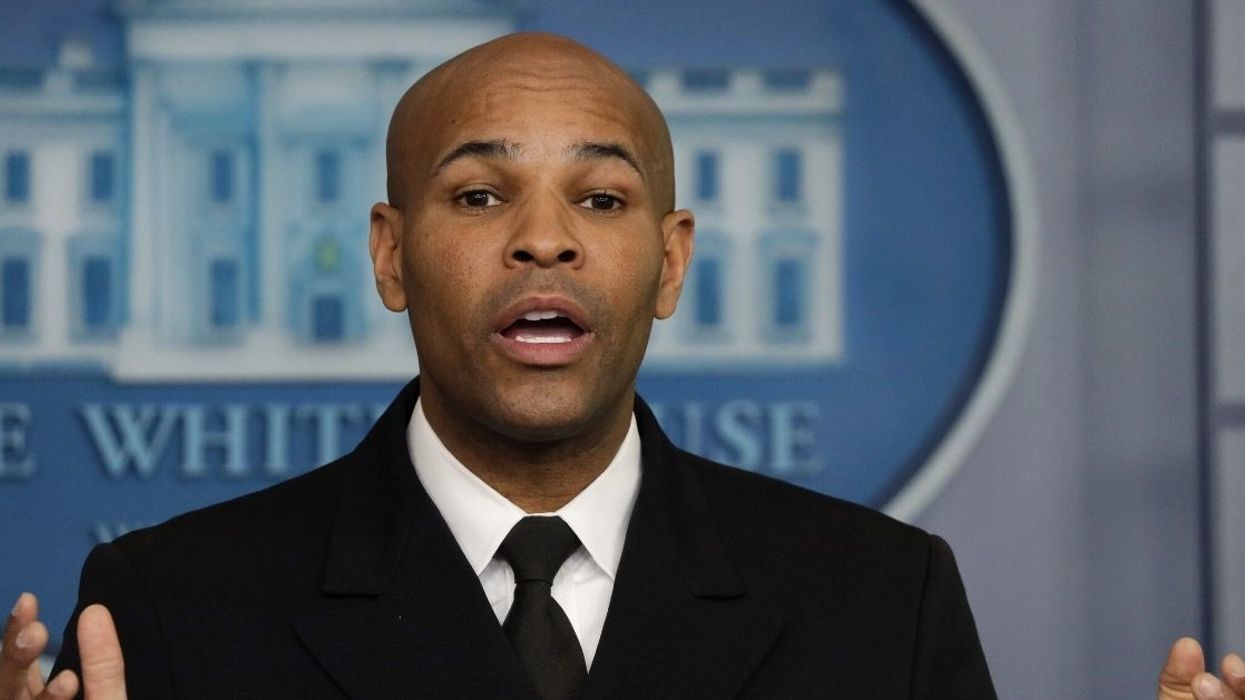As the U.S. suffers under the influence of the global pandemic, communities of color have been disproportionally affected, seeing a higher number of deaths due to the virus despite a smaller percentage of the total population.
During a White House press briefing, President Donald Trump's hand selected Surgeon General Jerome Adams addressed minority communities, using language some have deemed offensive to urge individuals to be careful.
The current Surgeon General is an anesthesiologist who previously worked in the administration of then Governor Mike Pence. Adams had no public health experience when he was appointed by Pence in 2014.
Adams called on communities of color to heed the White House's advice, saying:
"Do it for your grand daddy. Do it for your big mama. Do it for your pop-pop."
Adams also used the term abuela advised communities of color to "avoid alcohol, tobacco, and drugs."
Hd failed to offer the same advice to White people.
Though Adams was correct that minority communities are feeling the harshest effects of the pandemic, he failed to speak to the real reason this is so.
Studies have shown that systemic inequalities, rather than any difference in behaviors, are to blame.
Adams described people of color as "socially predisposed" to contracting the virus.
Journalists quickly pushed back against Adams' language.
Not only did Adams statement utilize language some found offensive, it also failed to pinpoint the true reason communities of color are more at risk.
"Socially predisposed" is a great way to gloss over the problems of structural inequality and systemic racism.
There were some who felt the Surgeon General should be given a pass on his mistake.
Others used this opportunity to point out that scientific studies have repeatedly shown Black Americans don't drink or smoke at a higher rate than White Americans.
The Surgeon General later went on Twitter to try to do some damage control.
If we truly want to mitigate the effect of disease on minority communities, the systemic issues that worsen the impact of disasters such as this pandemic have to be addressed.
The book Stamped: Racism, Antiracism, and You is available here.








 Roberto Schmidt/AFP via Getty Images
Roberto Schmidt/AFP via Getty Images





 u/pizzaratsfriend/Reddit
u/pizzaratsfriend/Reddit u/Flat_Valuable650/Reddit
u/Flat_Valuable650/Reddit u/ReadyCauliflower8/Reddit
u/ReadyCauliflower8/Reddit u/RealBettyWhite69/Reddit
u/RealBettyWhite69/Reddit u/invisibleshadowalker/Reddit
u/invisibleshadowalker/Reddit u/Wishnik6502/Reddit
u/Wishnik6502/Reddit u/kateastrophic/Reddit
u/kateastrophic/Reddit u/blking/Reddit
u/blking/Reddit u/SlagQueen/Reddit
u/SlagQueen/Reddit u/geezeslice333/Reddit
u/geezeslice333/Reddit u/meertaoxo/Reddit
u/meertaoxo/Reddit u/crystal_clear24/Reddit
u/crystal_clear24/Reddit u/stinkpot_jamjar/Reddit
u/stinkpot_jamjar/Reddit
 u/Bulgingpants/Reddit
u/Bulgingpants/Reddit
 @hackedliving/TikTok
@hackedliving/TikTok @hackedliving/TikTok
@hackedliving/TikTok @hackedliving/TikTok
@hackedliving/TikTok @hackedliving/TikTok
@hackedliving/TikTok @hackedliving/TikTok
@hackedliving/TikTok @hackedliving/TikTok
@hackedliving/TikTok @hackedliving/TikTok
@hackedliving/TikTok @hackedliving/TikTok
@hackedliving/TikTok @hackedliving/TikTok
@hackedliving/TikTok @hackedliving/TikTok
@hackedliving/TikTok
 @vanderjames/Instagram
@vanderjames/Instagram @vanderjames/Instagram
@vanderjames/Instagram @vanderjames/Instagram
@vanderjames/Instagram @vanderjames/Instagram
@vanderjames/Instagram @vanderjames/Instagram
@vanderjames/Instagram @vanderjames/Instagram
@vanderjames/Instagram @vanderjames/Instagram
@vanderjames/Instagram @vanderjames/Instagram
@vanderjames/Instagram @vanderjames/Instagram
@vanderjames/Instagram @vanderjames/Instagram
@vanderjames/Instagram